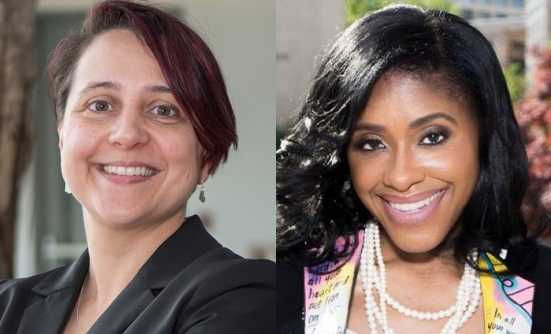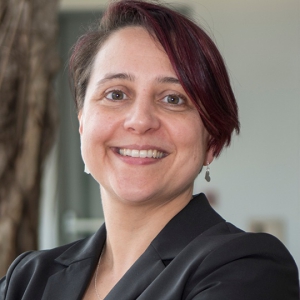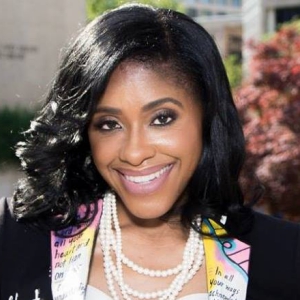This year’s World Cancer Day theme is “Close the Care Gap.” This theme highlights the fact that not everyone has benefitted from the significant progress that has been made in identifying cancer early and treating it with precision. Globally, many children who are diagnosed with cancer do not have access to standard-of-care therapies. Many countries have suboptimal surveillance systems, thus undercounting the number of cancer cases, which affects the distribution and use of healthcare services and research resources. Experts from poorer countries often migrate to higher-income countries, leaving a deficit of healthcare professionals trained and equipped to provide lifesaving care to patients in their home country. Inequity in cancer screening and access to treatment costs lives and affects everyone.
You may be thinking: Really? How does this affect me personally?
If the COVID-19 pandemic has shown us anything, it is that our health is interconnected. Failure to provide vaccines to lower-income countries in a timely manner resulted in the proliferation of variants that have affected us in the United States. Unlike COVID-19, cancer is not an infectious disease. Nevertheless, we live in a global society. Our action or inaction affects other people we will never meet. Similarly, other people deeply affect us directly.
Here is just one example. In the 1950s, Dr. George Grey collected the cells of many of his patients without their permission, and the cells he collected quickly died. Until he came across a patient named Henrietta Lacks. Ms. Lacks’ cells—dubbed HeLa cells—proliferated in his lab. Although Ms. Lacks died of cervical cancer at age 31, to this day her cells have been enabling researchers to study and find cures for many diseases.
For example, Ms. Lacks’ cells facilitated the growth of the poliovirus, so that scientists could understand how the virus infected human cells, thereby laying the foundation for the polio vaccine. Her cells continue to be used to this day to assess whether a cell line is cancerous or not. Her cells were used to discover how human cells would react to radiation and space travel. Her cells were also used to study the potential of the drug hydroxyurea to treat blood cancers and sickle-cell anemia. Ms. Lacks’ cells have also been used to study the drug campothecin, which slows cancer growth. And her cells were used to understand how HIV infection spreads in humans. Most recently, her cells were used to create the COVID-19 vaccines. And, until recently, these biomedical breakthroughs happened without Ms. Lacks or her family knowing about it.
Although Henrietta Lacks, a young black woman, did not give her consent for her body to be used for research, and never benefited from that research, scientists have benefited from accomplished careers using her cell lines. And anyone who has received a COVID-19 vaccine, cancer chemotherapy, or HIV therapy, has benefited from the HeLa cell research. In short, all of us today are indebted to this “Mother of Modern Medicine”—a black woman who died young—for so many lifesaving treatments. Yet so many black women, their partners, and their children die without access to these therapies—in the United States and abroad.
Cancer does not discriminate. It affects all races, ethnicities, sexual orientations, genders, and nationalities. But our cancer care system does discriminate. Although white women are more likely to get breast cancer, black women are more likely to die from breast cancer.
Systems of research and care have been built on a legacy of abuse toward those who were subjected to slavery in the United States. Systems were designed to benefit the lives and livelihoods of the people with most power. Thus, people of color from a variety of backgrounds, sexual and gender minorities, and other minority groups continue to experience disparities in cancer risk reduction, screening, treatment quality, and survival. As societal stigma has been sustained over centuries, the variety of risk factors for cancer and other chronic diseases are elevated for people who are experiencing chronic and generational stress.
It is time to close the care gap in access to cancer screening, treatment, and supportive care in the United States and globally.
Will you be part of the solution? Will you call on policymakers to invest in neighborhoods where all people can be physically active in a safe way, and access nutritious food to reduce their risk for cancer? Will you advocate for safe removal of cancer-causing toxins from poor neighborhoods, and for less pollution globally? Will you speak out against tobacco ads that target youth, sexual minorities, and poor black and brown neighborhoods? Will you examine where structural bias may hide in the systems we rely on every day, and speak truth to power to change those systems?
We invite you to use your voice, power, privilege, and resources wherever you have influence to close the gap, reduce the amount of cancer in the world, and create a kinder place for all of us to thrive.
For more information on how Ms. Lacks’ cells have influenced scientific research, read “Significant Research Advances Enabled by HeLa Cells,” at https://osp.od.nih.gov/scientific-sharing/hela-cells-timeline, or check out the book About the Immortal Life of Henrietta Lacks, by Rebecca Skloot.

















